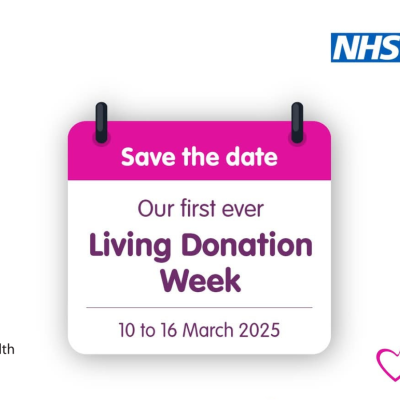Taking a flight soon? Know your rights on special assistance services
All airports and airlines in the UK and EU have a legal responsibility to assist passengers with a disability or reduced mobility throughout their journey. Special assistance is provided to make sure air travel is as convenient for passengers with a disability as it is for passengers without a disability.
However, a recent survey from the Consumer Council shows that two thirds (66%) of respondents were not aware of the legislation. The survey also found that respondents were not sure of what they were entitled to, or how and when to request special assistance.
Michelle Kelly, Head of Transport Policy at the Consumer Council explained:
“All disabilities are covered under special assistance including hidden disabilities such as learning difficulties, autism and hearing loss. Passengers with reduced mobility are also entitled to special assistance. This may be because of their age, an illness or a broken arm or leg. Special assistance services must be provided free of charge.”
Types of special assistance
Examples of special assistance include:
- Helping passengers check in luggage
- Assisting passengers travel through the airport, boarding and getting off the plane
- Providing information in accessible formats
- Extra help getting through security searches
- Transferring between flights
Michelle continued, “Following on from our survey, we want to highlight the services available to ensure air travel is an option for everyone and that legislation is in place to help people with disabilities and reduced mobility have a smooth journey.”
What you are entitled to
If you are entitled to special assistance, we have outlined below what you are entitled to:
- Assistance will only be provided if you request it. You should request assistance at least 48 hours before you travel to make sure all assistance needed, including any relevant equipment, is available. It is usually easiest to do this at the time of booking.
- If you make your booking directly with an airline, the airline will pass details of your assistance needs on to your departure and arrival airports.
- If you book with a travel agent or tour operator, they are responsible for informing the airline and the airline will inform the departure and arrival airports of your assistance needs.
- If you arrange your own flight connection by booking tickets with two different airlines, make sure you contact both airlines with information about the assistance you require.
- If an airline refuses to allow you to travel alone because of safety reasons, for example, if you are unable to fasten or unfasten your seatbelt unaided, you may be required to travel with a companion who can provide you with personal assistance during the flight.
The assistance provided must meet your needs. For example, someone with a visual impairment may need a guide to escort them through the airport, while someone with mobility needs may need to use an airport wheelchair.
Consumer experiences of special assistance services
Neil McCullough, 45, from Dromara County Down is blind and flies several times a year to England to see his two daughters. He shares his experience of how invaluable special assistance services are to him.
”Airport special assistance means I can travel when I want with the least stress possible. I would say that if you have sight loss, special assistance ensures travelling through an airport feels safe and problem free. The staff are great, they don’t rush you and help with getting food or drink and toilet visits. I would find it incredibly difficult and stressful travelling through an airport without having the consistent support offered by the special assistance team.
“We’re off on our travels again at the end of May and we always make sure to book our special assistance at the same time as booking our flights so everything’s in order for when we arrive at the airport.”
Where to go to for help
There are a number of organisations which can provide additional advice consumers with specific concerns. A full list is provided on the Consumer Council website.
Kiely Lawlor from Autism NI explains how they can help:
“Travelling to a new destination or country can be exciting and stressful for everybody, but there are extra things to be considered if you are travelling with someone who is autistic. Autism NI encourages anyone who needs to use special assistance to contact their helpline or website to avail of support and signposting to our resources and fact sheets”
Complaints
If you are not satisfied with the service provided by an airline or airport, you should raise the issue with a member of airline or airport staff immediately. If you are still not satisfied with the assistance received, report your complaint to the management of the airline, airport or tour operator. If you are not satisfied the with the overall outcome contact us on 0800 121 6022 or contact@consumercouncil.org.uk and we will investigate the matter further.
For more information including a list of useful disability organisations and a copy of our Access to Air Travel guide, visit the Consumer Council website on www.consumercouncil.org.uk/airtravelforall.

Consumer Council for Northern Ireland
Consumer Council for Northern Ireland
Floor 3, Seatem House,
Belfast
BT2 8EN
United Kingdom



